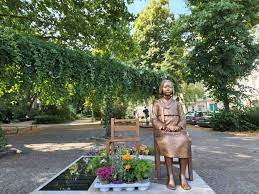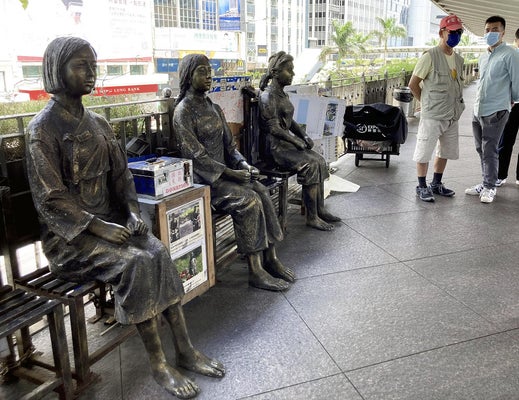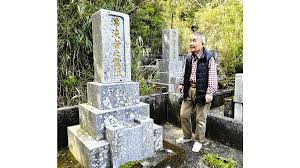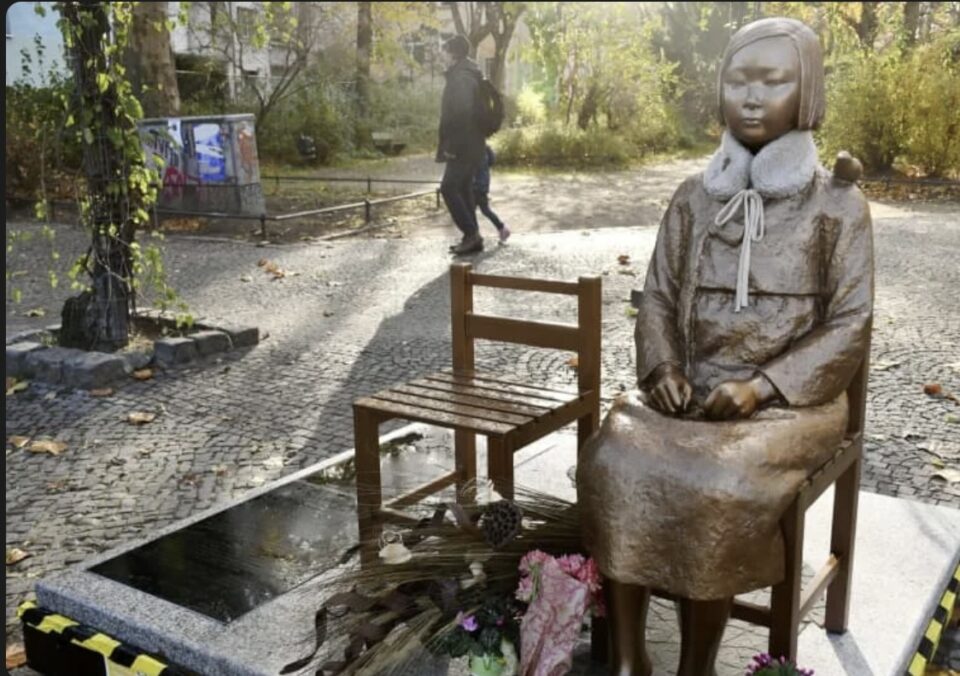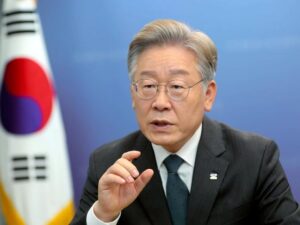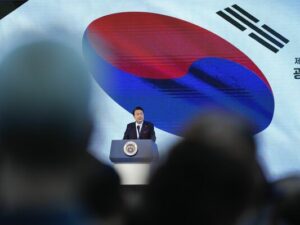The remaining funds of the “Reconciliation and Healing Foundation,” which the former Moon Jae-in administration dissolved after the Japanese government contributed 1 billion yen to the foundation under the 2015 Japan-South Korea Comfort Women Agreement, are still floating in limbo after five and a half years. …..
The remaining assets of the “Reconciliation and Healing Foundation,” to which the Japanese government contributed 1 billion yen under the 2015 Japan-South Korea comfort women agreement and which the South Korean government dissolved, have become an issue without being dealt with. When the Moon Jae-in administration dissolved the foundation, the Ministry of Women and Family Affairs, the competent authority, said that it would take less than a year to dispose of the remaining 5.6 billion won, but five and a half years have passed and the amount has still not been completed, swelling to 5.94 billion won with interest on deposits. The Ministry of Foreign Affairs says that it is continuing to discuss the matter with the Ministry of Foreign Affairs, but there has been no movement on the matter and some are calling it a dereliction of duty.
●18, Moon Jae-in’s administration dissolved the “Reconciliation and Healing Foundation” On December 28, 2015, then Foreign Minister Fumio Kishida and South Korean Foreign Minister Yun Byung-se held a foreign ministerial meeting and agreed to resolve the comfort women issue finally and irreversibly. The Japanese government will contribute 1 billion yen to a support foundation to be established by the South Korean government, with the Prime Minister expressing sincere apologies. The South Korean government will work to ensure that the comfort women statue in front of the Japanese embassy in South Korea is properly resolved. The two governments will refrain from any further criticism or condemnation of the comfort women issue in the international community. On July 28, 2016, the South Korean government established the “Foundation for Reconciliation and Healing” under the agreement, and the Japanese government transferred 1 billion yen. On September 1, the ROK government announced that it had confirmed receipt of the money. The foundation decided to provide 46 surviving former comfort women with approximately 100 million won each and 199 bereaved families with approximately 20 million won each, but the foundation was blocked by groups such as the comfort women-related organization Justice and Memory Solidarity and the House of Nanum, where former comfort women reside. A total of 4.4 billion won was awarded to 34 former comfort women and 58 bereaved families. In November 2006, the Moon Jae-in administration said it would dissolve the Reconciliation and Healing Foundation, and in July 2007, the dissolution procedure was completed. Former President Moon Jae-in, who pledged to review the comfort women agreement, said he would return the 1 billion yen to Japan, but the Japanese government refused to review the agreement and further stated that it would not accept the money even if remitted, strongly protesting the dissolution. When the Japanese government contributed the 1 billion yen, there were voices in Japan as well as in South Korea that the South Korean government would eventually break the agreement. In many cases, when a new administration takes power in South Korea, the policies of the previous administration and promises made to Japan and other countries are reneged on, and the Japan-Korea Joint Declaration signed in 1998 by Prime Minister Keizo Obuchi and President Kim Dae-jung has been effectively annulled.
When Japan and South Korea agreed on the comfort women issue in 2003, the friction between the two countries was known throughout the world. In March 2002, U.S. President Barack Obama, concerned about the strained relations, invited Prime Minister Shinzo Abe and President Park Geun-hye to the residence of the U.S. ambassador in The Hague, the Netherlands, to host a summit meeting, but the meeting failed to repair relations. President Obama also urged improved relations when he met with President Park Geun-hye at the White House in October 2003 and with former Prime Minister Shinzo Abe in Malaysia during a business trip in November. At the U.S. president’s request, the two leaders held a bilateral summit meeting in Seoul, where the Trilateral Summit was held, and agreed to build a future-oriented relationship. If South Korea unilaterally abrogates the agreement, which is the product of President Obama’s efforts, the United States and other countries will recognize that South Korea is a country that does not keep its promises. The 1 billion yen contributed by Japan is directly intended as compensation for the former comfort women, but it also has a significant meaning as a guarantee of South Korea’s international credibility. If Japan were to accept the return of the money, it would be an admission of a country that does not keep its promises. While Japan could have anticipated to some extent that the agreement would be broken, South Korea has lost the trust of North Korea and China, in addition to the United States. North Korea has not responded to the pro-North Korean regime’s negotiations since then, and in 2008 it blew up its North and South Korea offices. Chinese President Xi Jinping also did not respond to President Moon Jae-in’s request to visit South Korea.
● What has happened to those who criticized the comfort women agreement? …… Today, those who criticized the comfort women agreement are nowhere to be seen. The then-director of the “House of Nanum,” which interfered with the payment, was found to have committed fraud and was sentenced to prison. The same is true of Mika Yun, former head of the Justice Federation, who entered the National Assembly in the 2008 general election but was convicted of embezzlement, etc. Although she did not run in the April 2012 general election, she did not make the headlines. Even if he were to run and be reelected, he would lose his post if his conviction is confirmed by an appeals court during his term of office. Former President Moon Jae-in is also not in the public eye: the documentary film “It’s Moon Jae-in,” which premiered in May 2011, drew 100,000 viewers. In contrast to the film “It’s Roh Moo-hyun,” which drew more than 1 million viewers within 10 days of its release, “You’re Cho Guk,” a documentary film about the onion man, drew less than 300,000 viewers. The Japanese government must approve the disposition of the remaining funds of the “Reconciliation and Healing Foundation.” South Korea has proposed returning the 1 billion yen or using it for other related projects, but Japan has again refused to refund the money and said that it cannot be used for anything other than its original purpose. Civil society and academia demanded immediate action, such as returning the money or putting it into a project to support comfort women, while one law professor insisted that it would be a courtesy to Japan to restore the foundation to its original state and continue its work. In both the public and private sectors and academia, the resolution of the comfort women issue, which was the premise for the contribution, is being neglected.
NEWS WEEK
